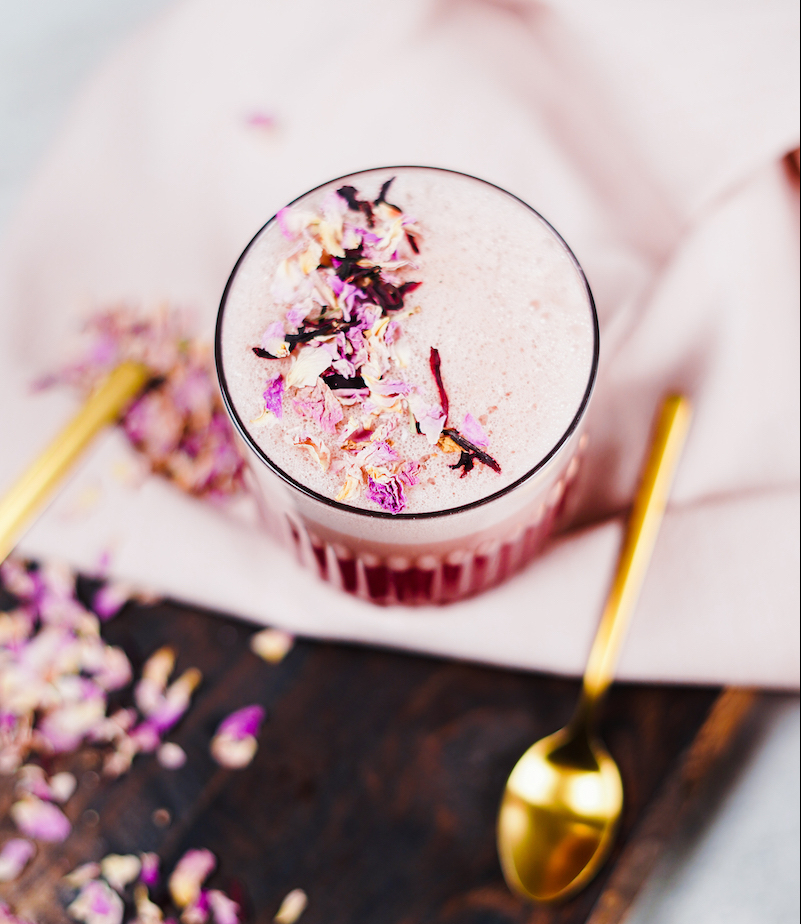Your Dinner Might Be Why You’re Not Sleeping. Here’s How to Fix It Tonight.
For years, I’ve worked with folks who are just plain exhausted. They drag themselves into my office, struggling to fall asleep, waking up constantly, and walking through their days in a fog. We always cover the usual suspects: stress, screens, exercise. But honestly, the one change that delivers the biggest, fastest results almost always happens on their dinner plate.
In this article
What you eat in the hours before bed is one of the most powerful tools you have for better sleep. It’s also one of the most misunderstood. This isn’t about a scary list of ‘bad’ foods. It’s about getting smart about how your body winds down for the night. Your digestion, hormones, and even your body temperature all need to be on the same page to let you drift off peacefully. The wrong meal can throw that whole system into chaos.
Overwhelmed? Your #1 Mission Tonight
Listen, if you’re too tired to overhaul your whole diet, I get it. So let’s make it simple. If you do only ONE thing differently tonight, make it this:

Finish your last big meal at least three hours before you plan to go to sleep.
That’s it. Don’t even change what you eat yet. Just change the timing. This single move gives your digestive system a head start so it isn’t running a marathon while you’re trying to rest. See how you feel tomorrow morning. You might be surprised.
The ‘Why’ Behind It All: What Happens When You Eat Late
So, why is timing so important? Think of it this way: eating a big meal right before bed is like asking your body to do heavy construction and go to sleep at the same time. It just doesn’t work.
First, there’s the obvious: digestion. Breaking down food is an active, energy-intensive job. Your stomach is churning and producing acid. If this is happening when you lie down, your body gets mixed signals and can’t fully commit to deep, restorative rest. It also puts pressure on the valve that keeps stomach acid where it belongs, which is why so many people get heartburn at night.

Then there’s your body temperature. To fall asleep, your core temp needs to drop slightly. But digesting food, especially a big meal high in protein or fat, actually generates heat. This is called the thermic effect of food. It can raise your body temperature just enough to keep you from drifting off. I once worked with a guy who couldn’t figure out why he was having night sweats. Turns out, his late-night steak dinners were the culprit. We moved his steak to lunchtime, and the sweats vanished in less than a week.
Finally, there’s the hormone game. A meal loaded with sugar or refined carbs (think pasta, white bread, dessert) can send your blood sugar on a wild ride. Your body releases insulin to handle the spike, but this can lead to a blood sugar crash a few hours later. When that happens, your body can release stress hormones like cortisol to fix it. And that’s why you might find yourself wide awake at 3 a.m. with your heart racing.

The Usual Suspects: What to Sidestep in the Evening
Okay, now that you know the ‘why’, let’s talk about the specific foods that cause the most trouble. Here are the common sleep-wreckers and what to choose instead.
The Heavy Hitters: Greasy, Fatty Meals
A burger and fries, a cheesy pizza, or pasta with a thick cream sauce feels comforting, but it’s a disaster for sleep. Fat is the slowest macronutrient to digest, meaning that meal can sit in your stomach for hours, demanding work from your body and increasing the risk of acid reflux.
Sleep-Friendly Swap: Think lean and clean. Instead of fried chicken, go for a baked chicken breast. Instead of a creamy pasta sauce, try a light tomato-based sauce with herbs. A piece of grilled fish with roasted vegetables is a fantastic choice that your body can process much more easily.
The Sugar Rush: Desserts and Refined Carbs
That bowl of ice cream or a couple of cookies is a classic sleep trap. It sets you up for that blood sugar rollercoaster we talked about, often leading to that dreaded 3 a.m. wake-up call. Large portions of white pasta or bread can do the same thing.

Sleep-Friendly Swap: If you’re craving something sweet, try having a small apple with a tablespoon of peanut butter or a few dried cherries with a small handful of almonds (about 15-20). The fiber and protein help slow down the sugar absorption for a much more stable night.
The Fiery Foods: Anything Spicy
I love spicy food, but I’ve learned the hard way to keep it a lunchtime-only affair. The main compound in chili peppers, capsaicin, can cause killer indigestion and has been shown to raise body temperature, making it harder to fall asleep.
Heads up! I once thought a ‘healthy’ piece of dark chocolate at 10 p.m. was a good idea. Big mistake. I was tossing and turning for hours. I forgot that dark chocolate contains caffeine and another stimulant. The darker the chocolate, the more caffeine. For someone like me who’s sensitive, it’s a no-go after dinner.
Sleep-Friendly Swap: Get your flavor from herbs instead of heat. Basil, rosemary, oregano, cumin, and thyme add amazing complexity to your food without risking a night of heartburn and restlessness.

The Bloat-Inducers: Certain Veggies and Beans
This one feels unfair because these foods are so good for you. But things like broccoli, cauliflower, cabbage, and beans are high in a specific type of fiber that can be tough for our bodies to break down. When your gut bacteria ferment it, the byproduct is gas. That leads to bloating and discomfort—not exactly a recipe for restful sleep.
Sleep-Friendly Swap: It’s all about timing. Enjoy these amazing vegetables earlier in the day. If you do have them for dinner, keep the portion size small and make sure they’re cooked thoroughly, which can make them a bit easier on your system.
The Obvious (and Not-So-Obvious) Stimulants
We all know about coffee, but caffeine hides in a lot of places: most teas (black, green, white), sodas, and even that ‘healthy’ dark chocolate. It has a half-life of about 5-6 hours, meaning a 3 p.m. coffee can still be messing with you at 9 p.m. And then there’s alcohol. So many people use a ‘nightcap’ to relax, but it’s a trap. While it might make you feel drowsy initially, your body’s process of metabolizing alcohol severely disrupts the quality of your sleep later in the night, especially the restorative REM stage. You’ll wake up feeling groggy, not rested.

Sleep-Friendly Swap: Make 2 p.m. your firm caffeine cutoff. In the evening, switch to a naturally caffeine-free herbal tea like chamomile, peppermint, or rooibos. They are wonderfully calming. If you enjoy an evening drink, try sparkling water with a splash of cranberry juice and a lime wedge for a festive, non-alcoholic alternative.
Your Sleep-Friendly Shopping List & Meal Ideas
Okay, let’s make this super practical. Here’s a quick list of things to grab at the grocery store. You don’t need to spend a fortune to eat well for sleep.
- Lean Proteins: Chicken or turkey breast, fish fillets (frozen is a great budget buy, often under $10 a bag), and eggs. For plant-based, go for lentils or tofu. A bag of lentils is usually less than $3 and makes a ton of food.
- Complex Carbs: Oats (not the sugary packets), quinoa, sweet potatoes, and brown rice.
- Healthy Fats & Nuts: Avocados, almonds, walnuts, and pumpkin seeds. A small handful is all you need.
- Fruits & Veggies: Bananas, tart cherries (dried or juice), spinach, and leafy greens.
- Calming Teas: Chamomile, lavender, peppermint, or a ‘sleepy time’ blend.
Quick Tip for Tired People: Batch cook on Sunday! Cook up a few chicken breasts and a pot of quinoa. Then, on a busy weeknight, you can throw together a ‘Sleep-Friendly Bowl’ in five minutes. Just add a scoop of quinoa, some sliced chicken, a handful of spinach, and a drizzle of olive oil. Done.

Answering Your Big Questions
‘But I work late! I HAVE to eat right before bed. What’s the least damaging option?’
This is a super common problem. If you absolutely must eat within an hour or two of sleeping, go for something very small and easily digestible. The best bet is a protein shake made with an easily absorbed protein like whey or a plant-based powder, mixed with water. Or, a small bowl of Greek yogurt. These are liquid or semi-liquid and won’t require as much heavy digestive work as a solid meal. Avoid fat and fiber at all costs in this scenario.
‘What about drinking water before bed?’
Hydration is key, but chugging a huge glass of water right before you turn out the lights is a surefire way to guarantee a midnight trip to the bathroom, which disrupts your sleep cycle. It’s better to stay hydrated throughout the day and then just take small sips in the evening if you’re thirsty. Stop drinking large amounts of liquid about two hours before bed.

At the end of the day, think of your evening meal as the first step of your bedtime routine. By eating light, eating early, and being intentional with your food choices, you’re paving the way for the deep, restorative sleep you deserve. It’s a simple shift with a massive payoff.
Inspirational Gallery


What if I’m genuinely hungry before bed?
While a heavy meal is off the table, a light, smart snack can actually help. The goal is to provide your body with sleep-promoting nutrients without taxing your digestion. Think small and strategic. A handful of almonds provides magnesium and melatonin, while a few tart cherries (or a splash of pure juice) are a potent natural source of melatonin. For a soothing ritual, a warm cup of caffeine-free tea, like Pukka’s ‘Night Time’ blend with oat flower and lavender, can signal to your body that it’s time to wind down.
Did you know? The body’s production of melatonin, the key sleep hormone, is highly sensitive to light and certain nutrients.
To support this natural process, focus on incorporating tryptophan-rich foods into your evening meal. This amino acid is a precursor to serotonin, which in turn converts to melatonin. Think turkey, chicken, oats, and bananas. Combining these with a small portion of complex carbohydrates, like a slice of whole-wheat toast or a bit of sweet potato, helps make the tryptophan more available to your brain. It’s a gentle nutritional nudge toward a deeper sleep.










